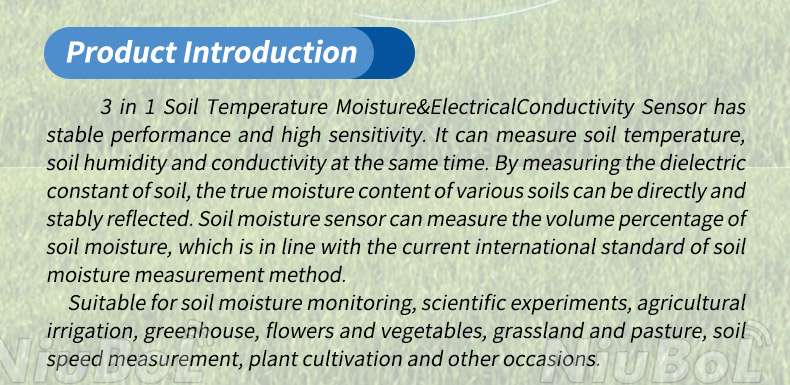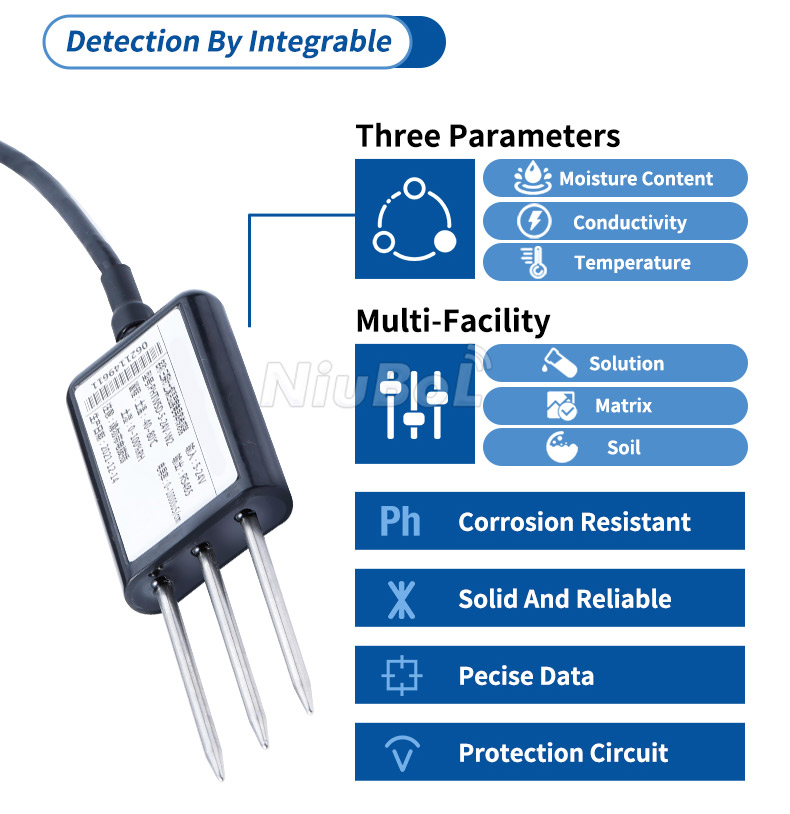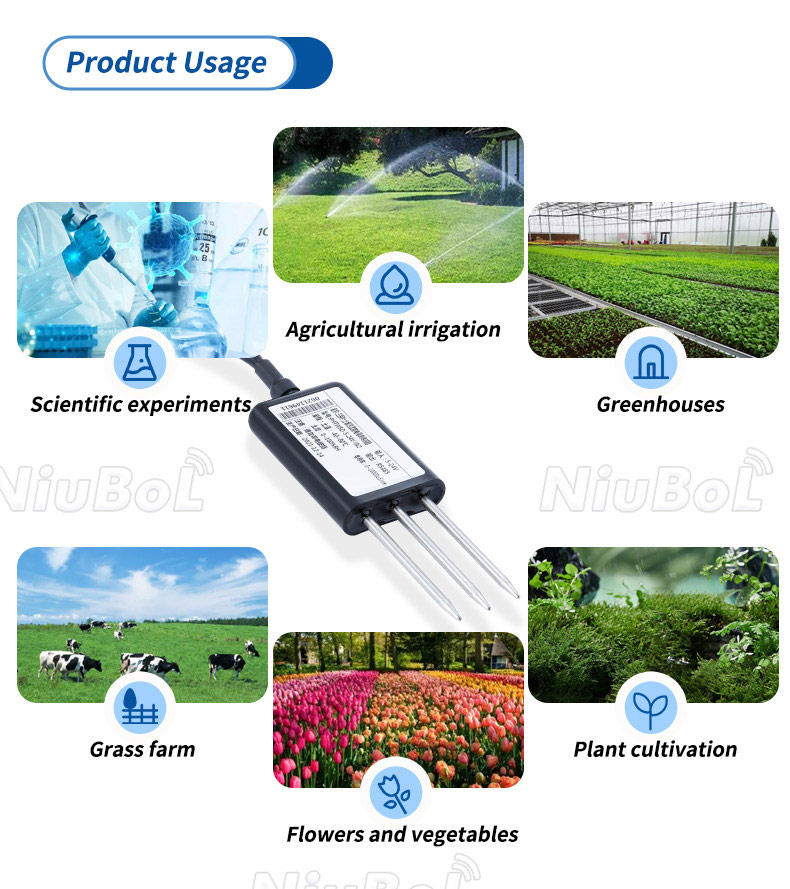

— Blogs —
—Products—
 Consumer hotline +8618073152920
Consumer hotline +8618073152920 WhatsApp:+8615367865107
Address:Room 102, District D, Houhu Industrial Park, Yuelu District, Changsha City, Hunan Province, China
Product knowledge
Time:2024-03-03 11:34:20 Popularity:1083
A soil moisture sensor is a device designed to measure the moisture content in the soil.Soil moisture sensors are instrumental in various fields, primarily in agriculture, environmental monitoring, and smart irrigation systems.Their primary purpose is to accurately measure the volumetric water content in the soil. Here are some specific purposes and benefits of using soil moisture sensors:
1. Agricultural Productivity: Knowing the soil moisture levels helps farmers make informed decisions about when and how much to irrigate their crops. Proper irrigation is essential for the health of crops, as both overwatering and underwatering can be detrimental to plant growth. By optimizing irrigation schedules based on soil moisture data, farmers can improve crop yield and quality.

2. Water Conservation: Soil moisture sensors play a significant role in conserving water. In areas where water is scarce, it's vital to use water resources efficiently. By providing precise data on the soil's moisture content, these sensors ensure that water is only used when necessary, thereby reducing wastage.
3. Environmental Monitoring: Beyond agriculture, soil moisture sensors are used in environmental monitoring to study the water cycle, forecast weather, and monitor drought conditions.Soil moisture plays a critical role in the water cycle and climate regulation.They help in understanding how soil moisture impacts weather patterns and climate change.
4. Landscaping and Gardening: In urban landscaping and home gardening, soil moisture sensors can help maintain healthy lawns and gardens by ensuring plants receive the right amount of water. This not only contributes to the aesthetic value of urban and residential areas but also supports biodiversity.
5. Research and Development: Researchers utilize soil moisture data to study various phenomena related to soil science, plant biology, and ecology. This information can lead to new insights into how different factors affect soil and plant health.


6. Smart Irrigation Systems: In modern agriculture and landscaping, soil moisture sensors are often integrated into smart irrigation systems. These systems use real-time data to automate watering schedules, further enhancing water efficiency and reducing labor costs.
Agricultural Irrigation: One of the most significant uses of soil moisture sensors is to determine the optimal timing and amount of water needed for irrigation. By monitoring soil moisture levels, farmers and agriculturalists can ensure that their crops receive adequate water without over- or under-watering, which can affect yield and crop health.
7. Soil Health Monitoring: Soil moisture sensors can also provide insights into soil health. Moisture content is one of the indicators of soil fertility and can help in making decisions regarding soil amendments, fertilizers, and organic matter management.
8. Land Use Planning: Data on soil moisture can inform land use planning decisions, especially in areas where water resources are limited or where certain land management practices are being considered.

Overall, soil moisture sensors serve the critical purpose of providing accurate and timely information about soil water content, enabling more informed decision-making in agriculture, conservation, and environmental management. By doing so, they support sustainable practices that benefit both the economy and the environment.
Agriculture-Sensors-Catalog-NiuBoL-2024.pdf
Related recommendations
Sensors & Weather Stations Catalog
Agriculture Sensors and Weather Stations Catalog-NiuBoL.pdf
Weather Stations Catalog-NiuBoL.pdf
Related products
 Combined air temperature and relative humidity sensor
Combined air temperature and relative humidity sensor Soil Moisture Temperature sensor for irrigation
Soil Moisture Temperature sensor for irrigation Soil pH sensor RS485 soil Testing instrument soil ph meter for agriculture
Soil pH sensor RS485 soil Testing instrument soil ph meter for agriculture Wind Speed sensor Output Modbus/RS485/Analog/0-5V/4-20mA
Wind Speed sensor Output Modbus/RS485/Analog/0-5V/4-20mA Tipping bucket rain gauge for weather monitoring auto rainfall sensor RS485/Outdoor/stainless steel
Tipping bucket rain gauge for weather monitoring auto rainfall sensor RS485/Outdoor/stainless steel Pyranometer Solar Radiation Sensor 4-20mA/RS485
Pyranometer Solar Radiation Sensor 4-20mA/RS485
Screenshot, WhatsApp to identify the QR code
WhatsApp number:+8615367865107
(Click on WhatsApp to copy and add friends)